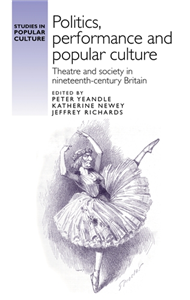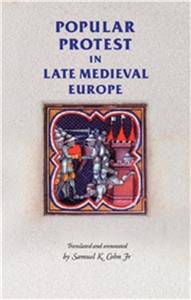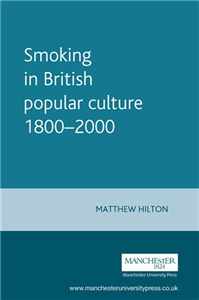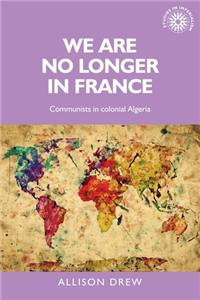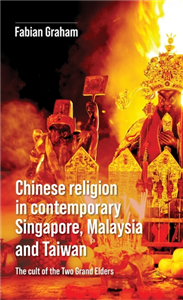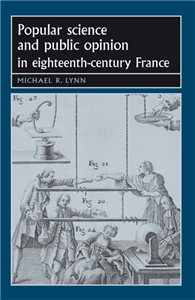Your Search Results
-
Deutsches Kulturforum östliches Europa e.V.
The German Cultural Forum for Central and Eastern Europe publishes richly illustrated non-fiction books about the cultural history of those areas of Central and Eastern Europe where Germans used to, or still do live. The carefully edited titles with elaborated appendices are written by well-known experts who are able to present information about Central and Eastern Europe in an attractive way by cultural travel guides or historical overview books. The Cultural Forum also edits an annual and a bimonthly magazine, Blickwechsel ("Change of perspective") and Kulturkorrespondenz östliches Europa ("Cultural Correspondence Central and Eastern Europe"). Furthermore, the Forum organizes popular lectures, discussions, readings, exhibitions, concerts, journalist trips, writer residencies and prize-givings.
View Rights Portal
-
Promoted ContentLiterature & Literary StudiesJanuary 2013
Popular protest in late-medieval Europe
Italy, France and Flanders
by Samuel Kline Cohn
The documents in this stimulating volume span from 1245 to 1424 but focus on the 'contagion of rebellion' from 1355 to 1382 that followed in the wake of the plague. They comprise a diversity of sources and cover a variety of forms of popular protest in different social, political and economic settings. Their authors range across a wide political and intellectual horizon and include revolutionaries, the artistocracy, merchants and representatives from the church. They tell gripping and often gruesome stories of personal and collective violence, anguish, anger, terror, bravery, and foolishness. Of over 200 documents presented here, most have been translated into English for the first time, providing students and scholars with a new opportunity to compare social movements across Europe over two centuries, allowing a re-evaluation of pre-industrial revolts, the Black Death and its consequences for political culture and action. This book will be essential reading for those seeking to better understand popular attitudes and protest in medieval Europe.
-
Promoted ContentHumanities & Social SciencesFebruary 2023
Politics, performance and popular culture
Theatre and society in nineteenth-century Britain
by Peter Yeandle, Katherine Newey, Jeffrey Richards
This collection brings together studies of popular performance and politics across the nineteenth century, offering a fresh perspective from an archivally grounded research base. It works with the concept that politics is performative and performance is political. The book is organised into three parts in dialogue regarding specific approaches to popular performance and politics. Part I offers a series of conceptual studies using popular culture as an analytical category for social and political history. Part II explores the ways that performance represents and constructs contemporary ideologies of race, nation and empire. Part III investigates the performance techniques of specific politicians - including Robert Peel, Keir Hardie and Henry Hyndman - and analyses the performative elements of collective movements.
-
 Trusted Partner
Humanities & Social SciencesFebruary 2017
Trusted Partner
Humanities & Social SciencesFebruary 2017European Empires and the People
Popular responses to imperialism in France, Britain, the Netherlands, Belgium, Germany and Italy
by John M. MacKenzie
This is the first book to survey in comparative form the transmission of imperial ideas to the public in six European countries in the nineteenth and twentieth centuries. The chapters, focusing on France, Britain, the Netherlands, Belgium, Germany and Italy, provide parallel studies of the manner in which colonial ambitions and events in the respective European empires were given wider popular visibility. The international group of contributors, who are all scholars working at the cutting edge of these fields, place their work in the context of governmental policies, the economic bases of imperial expansion, major events such as wars of conquest, the emergence of myths of heroic action in exotic contexts, religious and missionary impulses, as well as the new media which facilitated such popular dissemination. Among these media were the press, international exhibitions, popular literature, educational institutions and methods, ceremonies, church sermons and lectures, monuments, paintings and much else.
-
 Trusted Partner
Humanities & Social SciencesJune 2011
Trusted Partner
Humanities & Social SciencesJune 2011Democratic Participation and Civil Society in the European Union
by Dawid Friedrich, Emil Kirchner, Thomas Christiansen
Can the participation of civil society organisations democratise policy making in the European Union? This book challenges the widespread optimism about civil society participation in European governance and offers a nuanced and realistic evaluation of its democratic potential. Friedrich argues that the participation of these groups is only of democratic value if participatory patterns are democratised through appropriate institutional means. This book systematically brings together insights from normative democratic theory with an empirical evaluation of concrete policy-processes. It demonstrates that the participation of civil society organisation cannot be conceived as a panacea for the European Union's democratic deficit, because the participatory pattern of EU policy-making violates the key democratic value of political equality. This book will be of interest to all of those concerned about the future of European democracy, those studying and teaching European politics, the European Union, international relations and democratic theory. ;
-
 Trusted Partner
The ArtsJanuary 2019
Trusted Partner
The ArtsJanuary 2019Popular cinema in Brazil, 1930–2001
by Stephanie Dennison, Lisa Shaw
Brazil has one of the most significant and productive film industries in Latin America. This ground-breaking study provides an entertaining insight into the Brazilian films that have most captured the imagination of domestic audiences over the years. The recent international success of films such as Central Station and City of God, has stimulated widespread interest in Brazilian film, but studies written in English focus on the 'auteur' cinema of the 1960s. This book focuses on individual films in their socio-historical context, drawing on extensive fieldwork in Brazil and Latin America. It argues that Brazilian cinema has almost always been grounded in intrinsically home-grown cultural forms, dating back to the nineteenth century, such as the Brazilian music-hall, the travelling circus, radio shows, carnival, and, later, comedy television. Combining a chronological structure with groundbreaking research and a lively approach, Popular cinema in Brazil is the ideal introduction to Brazilian cinema.
-
 Trusted Partner
The ArtsNovember 2013
Trusted Partner
The ArtsNovember 2013Popular television in authoritarian Europe
by Peter Goddard
This lively and ground-breaking collection brings together work on forms of popular television within the authoritarian regimes of Europe after World War Two. Ten chapters based on new and original research examine approaches to programming and individual programmes in Spain, Greece, Czechoslovakia, Romania, the USSR and the GDR at a time when they were governed as dictatorships or one-party states. Drawing on surviving archives, scripts and production records, contemporary publications, YouTube clips and interviews with producers and performers, its chapters recover examples of television programming history unknown beyond national borders and often preserved largely in the memories of the audiences who lived with them. The introduction examines how television can be considered 'popular' in circumstances where audience appeal is often secondary to the need for state control. Published in English, Popular television in authoritarian Europe represents a significant intervention in transnational television studies, making these histories available to scholars for the first time, encouraging comparative enquiry and extending the reach - intellectually and geographically - of European television history. There is a foreword by John Corner and an informative timeline of events in the history of television in the countries covered. ;
-
 Trusted Partner
Literature & Literary StudiesDecember 2004
Trusted Partner
Literature & Literary StudiesDecember 2004Popular protest in late-medieval Europe
Italy, France and Flanders
by Samuel Kline Cohn Jr, Rosemary Horrox, Simon Maclean
The documents in this stimulating volume span from 1245 to 1424 but focus on the 'contagion of rebellion' from 1355 to 1382 that followed in the wake of the plague. They comprise a diversity of sources and cover a variety of forms of popular protest in different social, political and economic settings. Their authors range across a wide political and intellectual horizon and include revolutionaries, the artistocracy, merchants and representatives from the church. They tell gripping and often gruesome stories of personal and collective violence, anguish, anger, terror, bravery, and foolishness. Of over 200 documents presented here, most have been translated into English for the first time, providing students and scholars with a new opportunity to compare social movements across Europe over two centuries, allowing a re-evaluation of pre-industrial revolts, the Black Death and its consequences for political culture and action. This book will be essential reading for those seeking to better understand popular attitudes and protest in medieval Europe. ;
-
 Trusted Partner
Literature & Literary StudiesOctober 2023
Trusted Partner
Literature & Literary StudiesOctober 2023The penny politics of Victorian popular fiction
by Rob Breton
Penny politics offers a new way to read early Victorian popular fiction such as Jack Sheppard, Sweeney Todd, and The Mysteries of London. It locates forms of radical discourse in the popular literature that emerged simultaneously with Brittan's longest and most significant people's movement. It listens for echoes of Chartist fiction in popular fiction. The book rethinks the relationship between the popular and political, understanding that radical politics had popular appeal and that the lines separating a genuine radicalism from commercial success are complicated and never absolute. With archival work into Newgate calendars and Chartist periodicals, as well as media history and culture, it brings together histories of the popular and political so as to rewrite the radical canon.
-
 Trusted Partner
Humanities & Social SciencesOctober 2023
Trusted Partner
Humanities & Social SciencesOctober 2023Towards a just Europe
A theory of distributive justice for the European Union
by João Labareda
This highly original book constitutes one of the first attempts to examine the problem of distributive justice in the European Union in a systematic manner. João Labareda argues that the set of shared political institutions at EU level, including the European Parliament and the Court of Justice of the EU, generate democratic duties of redistribution among EU citizens. Furthermore, the economic structure of the EU, comprising a common market, a common currency and a free-movement area, triggers duties of reciprocity among member states. The responsibilities to fulfil these duties, Labareda argues, should be shared by the local, national and supranational levels of government. Not only should the EU act as a safety net to the national welfare systems, applying the principle of subsidiarity, but common market and Eurozone regulations should balance their efficiency targets with fair cooperation terms. The concrete policy proposals presented in this book include a threshold of basic goods for all EU citizens, an EU labour code, a minimum EU corporate tax rate and an EU fund for competitiveness. Labarada argues that his proposals match the political culture of the member states, are economically feasible, can be translated into functioning institutions and policies and are consistent with the limited degree of social solidarity in Europe. This book is a major contribution to the understanding of what a just Europe would look like and what it might take to get us there. This book is relevant to United Nations Sustainable Development Goal 10, Reduced inequalities
-
 Trusted Partner
Humanities & Social SciencesOctober 2021
Trusted Partner
Humanities & Social SciencesOctober 2021Ireland and the European Union
Economic, political and social crises
by Michael Holmes, Kathryn Simpson, Dimitris Papadimitriou, Kathryn Simpson, Paul Tobin
This book examines how Ireland's relationship with the EU was affected by a succession of crises in both the Republic of Ireland and Northern Ireland. The financial crisis, the Brexit crisis and the migration crisis were not of equal significance on the island of Ireland. The financial crisis was a huge issue for the Republic but not Northern Ireland, Brexit had a major impact in both polities, the migration and populism issues were less controversial, while foreign policy challenges had a minimal impact. The book provides a summary of the main features of each of the crises to be considered, from both the EU and the Irish perspective. Ireland and the European Union is the first volume of its kind to provide a comprehensive analysis on British-Irish relations in the context of Brexit. It assesses the Withdrawal Agreement and Protocol on Ireland/Northern Ireland, the devolution settlement and the 1998 Agreement, as well as the European dimension to Northern Ireland's peace process. The contributors explore a number of policy areas that are central to the understanding of each of the crises and the impact of each for Ireland. Chapters examine issues such as security, migration and taxation as well as protest politics, political parties, the media, public opinion and the economic impact of each of these crises on Ireland's relationship with the EU.
-
 Trusted Partner
Lifestyle, Sport & LeisureAugust 2016
Trusted Partner
Lifestyle, Sport & LeisureAugust 2016Culture in Manchester
Institutions and urban change since 1850
by Janet Wolff, Mike Savage
This book brings together studies of cultural institutions in Manchester from 1850 to the present day, giving an unprecedented account of the city's cultural evolution. These bring to light the remarkable range of Manchester's contribution to modern cultural life, including the role of art education, popular theatre, religion, pleasure gardens, clubs and societies. The chapters show the resilience and creativity of Manchester's cultural institutions since 1850, challenging any simple narrative of urban decline following the erosion of Lancashire's industrial base, at the same time illustrating the range of activities across the social classes. This book will appeal to everyone interested in the cultural life of the city of Manchester, including cultural historians, sociologists and urban geographers, as well as general readers with interests in the city. It is written by leading international authorities, including Viv Gardner, Stephen Milner, Mike Savage, Bill Williams and Janet Wolff.
-
 Trusted Partner
Humanities & Social SciencesMay 2000
Trusted Partner
Humanities & Social SciencesMay 2000Smoking in British popular culture 1800–2000
by Matthew Hilton, Jeffrey Richards
A concise history of smoking in British popular culture from the early nineteenth century to the present day.. Provides the historical backdrop to the current debates about the politics of tobacco and health, demonstrating that both pro- and anti-smokers have consistently failed to understand the position of smoking within popular culture.. Important themes explored include: the importance of consumption to constructions of masculinity and femininity, the role of the state in the official regulation of the 'minor vices', the morality of consumption and the position of scientific knowledge within popular culture.. Traces the production, promotion and consumption of tobacco as well as outlining the arguments that have variously opposed this ever-controversial drug.. Genuinely interdisciplinary, combining elements of social, cultural and economic history whilst contributing to debates in sociology and cultural studies, the anthropology of material culture, design history, medical history and public health policy. ;
-
 Trusted Partner
Humanities & Social SciencesFebruary 2017
Trusted Partner
Humanities & Social SciencesFebruary 2017We are no longer in France
Communists in colonial Algeria
by Andrew Thompson, Allison Drew, John M. MacKenzie
This book recovers the lost history of colonial Algeria's communist movement. Meticulously researched - and the only English-language book on the Parti Communiste Algérien - it explores communism's complex relationship with Algerian nationalism. During international crises, such as the Popular Front and Second World War years, the PCA remained close to its French counterpart, but as the national liberation struggle intensified, the PCA's concern with political and social justice attracted growing numbers of Muslims. When the Front de Libération Nationale launched armed struggle in November 1954, the PCA maintained its organisational autonomy - despite FLN pressure. They participated fully in the national liberation war, facing the French state's wrath. Independence saw two conflicting socialist visions, with the PCA's incorporated political pluralism and class struggle on the one hand, and the FLN demand for a one-party socialist state on the other. The PCA's pluralist vision was shattered when it was banned by the one-party state in November 1962. This book is of particular interest to students and scholars of Algerian history, French colonial history and communist history.
-
 Trusted Partner
Humanities & Social SciencesMarch 2017
Trusted Partner
Humanities & Social SciencesMarch 2017Martial races
The military, race and masculinity in British imperial culture, 1857–1914
by Heather Streets
This book explores how and why Scottish Highlanders, Punjabi Sikhs, and Nepalese Gurkhas became identified as the British Empire's fiercest, most manly soldiers in nineteenth century discourse. As 'martial races' these men were believed to possess a biological or cultural disposition to the racial and masculine qualities necessary for the arts of war. Because of this, they were used as icons to promote recruitment in British and Indian armies - a phenomenon with important social and political effects in India, in Britain, and in the armies of the Empire. Martial Races bridges regional studies of South Asia and Britain while straddling the fields of racial theory, masculinity, imperialism, identity politics, and military studies. Of particular importance is the way it exposes the historical instability of racial categories based on colour and its insistence that historically specific ideologies of masculinity helped form the logic of imperial defence, thus wedding gender theory with military studies in unique ways. Moreover, Martial Races challenges the marginalisation of the British Army in histories of Victorian popular culture, and demonstrates the army's enduring impact on the regional cultures of the Highlands, the Punjab and Nepal. This unique study will make fascinating reading for higher level students and experts in imperial history, military history and gender history.
-
 Trusted Partner
Humanities & Social SciencesApril 2022
Trusted Partner
Humanities & Social SciencesApril 2022Chinese religion in contemporary Singapore, Malaysia and Taiwan
The cult of the Two Grand Elders
by Fabian Graham
In Singapore and Malaysia, the inversion of Chinese Underworld traditions has meant that Underworld demons are now amongst the most commonly venerated deities in statue form, channelled through their spirit mediums, tang-ki. The Chinese Underworld and its sub-hells are populated by a bureaucracy drawn from the Buddhist, Taoist and vernacular pantheons. Under the watchful eye of Hell's 'enforcers', the lower echelons of demon soldiers impose post-mortal punishments on the souls of the recently deceased for moral transgressions committed during their prior incarnations. Chinese religion in contemporary Singapore, Malaysia and Taiwan offers an ethnography of contemporary Chinese Underworld traditions, where night-time cemetery rituals assist the souls of the dead, exorcised spirits are imprisoned in Guinness bottles, and malicious foetus ghosts are enlisted to strengthen a temple's spirit army. Understanding the religious divergences between Singapore and Malaysia (and their counterparts in Taiwan) through an analysis of socio-political and historical events, Fabian Graham challenges common assumptions about the nature and scope of Chinese vernacular religious beliefs and practices. Graham's innovative approach to alterity allows the reader to listen to first-person dialogues between the author and channelled Underworld deities. Through its alternative methodological and narrative stance, the book intervenes in debates on the interrelation between sociocultural and spiritual worlds, and promotes the destigmatisation of spirit possession and discarnate phenomena in the future study of mystical and religious traditions.
-
 Trusted Partner
Humanities & Social SciencesApril 2005
Trusted Partner
Humanities & Social SciencesApril 2005Democracy, social resources and political power in the European Union
by Niilo Kauppi
In this book Kauppi develops a structural constructivist theory of the European Union and critically analyses, through French and Finnish empirical cases, the political practices that maintain the Union's 'democratic deficit'. Kauppi conceptualises the European Union as both an arena for political contention and a nascent political order. In this evolving, multi-levelled European political field, individuals and groups construct material and symbolic structures of political power, grounded in a variety of social resources such as nationality, culture, and gender. The author shows how the dominance of both executive political resources and domestic political cultures has prevented the development of European democracy. Supranational executive networks have become more autonomous, reinforcing the dominance of the resources they control. At the same time, national political cultures condition the political status of elected institutions such as the European parliament. The book is particularly suited for undergraduate and graduate students in the fields of European Politics, European Union Studies and International Relations. ;
-
 Trusted Partner
Humanities & Social SciencesFebruary 2018
Trusted Partner
Humanities & Social SciencesFebruary 2018Popular science and public opinion in eighteenth-century France
by Michael Lynn, Joseph Bergin, Penny Roberts, Bill Naphy
In this book, Michael R. Lynn analyses the popularisation of science in Enlightenment France. He examines the content of popular science, the methods of dissemination, the status of the popularisers and the audience, and the settings for dissemination and appropriation. Lynn introduces individuals like Jean-Antoine Nollet, who made a career out of applying electric shocks to people, and Perrin, who used his talented dog to lure customers to his physics show. He also examines scientifically oriented clubs like Jean-François Pilâtre de Rozier's Musée de Monsieur which provided locations for people interested in science. Phenomena such as divining rods, used to find water and ores as well as to solve crimes; and balloons, the most spectacular of all types of popular science, demonstrate how people made use of their new knowledge. Lynn's study provides a clearer understanding of the role played by science in the Republic of Letters and the participation of the general population in the formation of public opinion on scientific matters.
-
 Trusted Partner
European historyOctober 2013
Trusted Partner
European historyOctober 2013Popular science and public opinion in eighteenth-century France
by Michael R. Lynn
Now available in paperback, Michael R. Lynn's book analyses the popularisation of science in Enlightenment France. He examines the content of popular science, the methods of dissemination, the status of the popularisers and the audience, and the settings for dissemination and appropriation. Lynn introduces individuals like Jean-Antoine Nollet, who made a career out of applying electric shocks to people, and Perrin, who used his talented dog to lure customers to his physics show. He also examines scientifically oriented clubs like Jean-François Pilâtre de Rozier's Musée de Monsieur which provided locations for people interested in science. Phenomena such as divining rods, used to find water and ores as well as to solve crimes; and balloons, the most spectacular of all types of popular science, demonstrate how people made use of their new knowledge. Lynn's study provides a clearer understanding of the role played by science in the Republic of Letters and the participation of the general population in the formation of public opinion on scientific matters.
-
 Trusted Partner
Humanities & Social SciencesFebruary 2006
Trusted Partner
Humanities & Social SciencesFebruary 2006Democratic citizenship and the European Union
by Albert Weale, Emil Kirchner, Thomas Christiansen
This book analyses the political legitimacy of the European Union, taking democratic citizenship seriously. Developing a distinctive normative theory of political association, it evaluates the project of European integration in terms of democratic values. It argues that the goods of democratic citizenship have been advanced by European integration in many respects, including environmental policy. In other respects, including social policy, democratic citizenship is best advanced by keeping primary political authority at the level of the nation-state. Weale develops these arguments through an original interplay of political science and political theory. The contents combine original normative political theory, drawing on the concept of practical reason, with applications to the fields of social policy, environmental policy, security policy and enlargement. The book is primarily an original work of political theory, but it will be of interest to all those concerned about the future of the European Union. It is written in a style that makes it accessible to students on advanced courses as well as specialists. ;
-
 Trusted Partner
Humanities & Social SciencesMarch 2017
Trusted Partner
Humanities & Social SciencesMarch 2017The French empire between the wars
Imperialism, politics and society
by Martin Thomas
By considering the distinctiveness of the inter-war years as a discrete period of colonial change, this book addresses several larger issues, such as tracing the origins of decolonization in the rise of colonial nationalism, and a re-assessment of the impact of inter-war colonial rebellions in Africa, Syria and Indochina. The book also connects French theories of colonial governance to the lived experience of colonial rule in a period scarred by war and economic dislocation.





